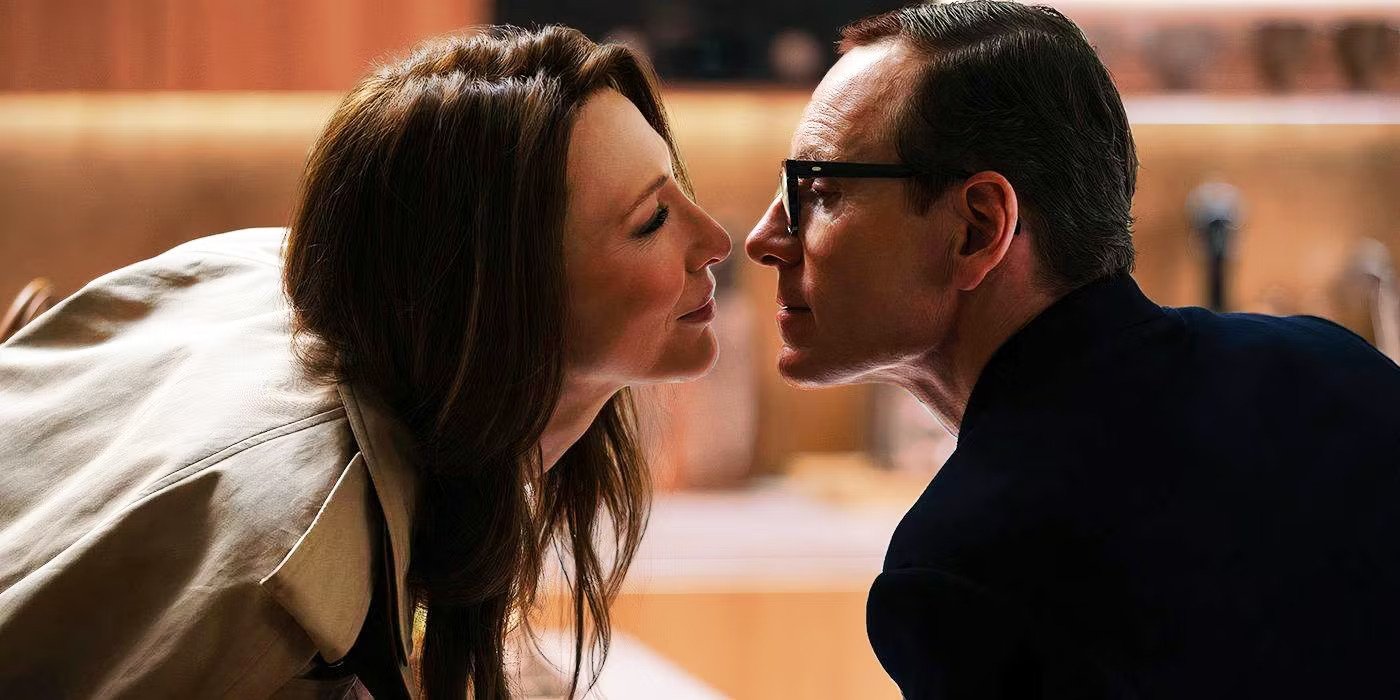‘BLACK BAG’: Trust No One, Enjoy Every Minute
Steven Soderbergh has built a career out of being unpredictable, in the best way. From ‘Ocean’s Eleven’ to ‘Traffic’ to ‘Contagion’ and even more experimental projects like ‘Unsane’ or ‘Kimi’, he’s never been one to stick to a formula. So when ‘Black Bag’ was announced, a sleek spy thriller starring Michael Fassbender and Cate Blanchett, expectations were naturally high. Luckily, Soderbergh delivers a tightly wound, stylish thriller that feels fresh while still tapping into the genre’s classic tension.
‘Black Bag’ follows George Woodhouse (Michael Fassbender), an intelligence operative with a serious allergy to dishonesty, as he navigates a tangled mission involving government secrets, personal betrayals, and the gnawing question of who, if anyone, can actually be trusted. It’s a story full of quiet glances, coded language, and tension that simmers just under the surface. Blanchett plays Kathryn Woodhouse, a high-level strategist whose presence adds layers of ambiguity to every scene she's in. The film doesn’t over-explain, but instead invites the viewer to start reading between the lines from the first frame.
One of the movie’s big strengths is how it dives into the psychology of trust. This isn’t just about double agents and intercepted messages, it’s about analyzing the people closest to you, understanding (or misunderstanding) their motives, and carrying the weight of deception. Fassbender’s character says repeatedly, “I don’t like liars,” and it’s more than a catchphrase. It’s a kind of moral anchor in a story where everyone else seems to live in shades of grey. The film explores how lies infect not just the workplace, but the home too, and it’s that personal edge that gives ‘Black Bag’ real emotional weight.
Both leads are excellent. Fassbender brings a quiet intensity and physicality to the role that makes you believe he’s constantly one step ahead, and yet always just one misstep from unraveling. Blanchett, meanwhile, is magnetic. She can flip from cold calculation to eerie warmth in a heartbeat, keeping both the audience and the characters guessing.
Soderbergh’s take on the spy genre feels sharp and modern without being flashy. There’s no bloat here. ‘Black Bag’ clocks in at a lean 90 minutes, proving you don’t need a two-and-a-half-hour epic to deliver intrigue, suspense, and emotional payoff. In fact, the tight runtime actually enhances the tension. Every scene matters. Every conversation carries weight.
One of the most quietly explosive scenes takes place around a dinner table hosted by Kathryn and George Woodhouse. What seems like a casual get-together among friends and fellow agents quickly reveals itself as a deeper game. Smiles are strained, compliments fall flat, and beneath the clinking of glasses, psychological chess is being played. Former lovers face off, old betrayals linger in the air, and passive-aggressive jabs expose cracks both personal and professional. The agents are trained to manipulate, gaslight, and read each other with terrifying precision, and they do, effortlessly.
The way the scene is filmed mirrors the unease perfectly: tight frames on faces, capturing every flicker of discomfort, every loaded glance. As the dinner progresses, the camera cuts sharply between expressions, as if trying to catch someone flinching under the weight of a lie. It builds tension not with action, but with the unbearable pressure of unspoken truths. You feel like you're watching a performance within a performance, a carefully staged dance where everyone knows the steps, but no one knows the ending. Trust isn’t just fragile; it’s almost irrelevant. Except, let’s hope, for Kathryn and George.
More than anything, ‘Black Bag’ stands out because it’s not just about espionage, it’s about manipulation, understanding, and the long game of trust. It asks: how well do we really know anyone? And what happens when your ability to read people becomes your greatest asset, or your biggest weakness? It’s a sharp, smart, and compelling entry in Soderbergh’s already eclectic filmography.
AFTERTASTE
4.5




